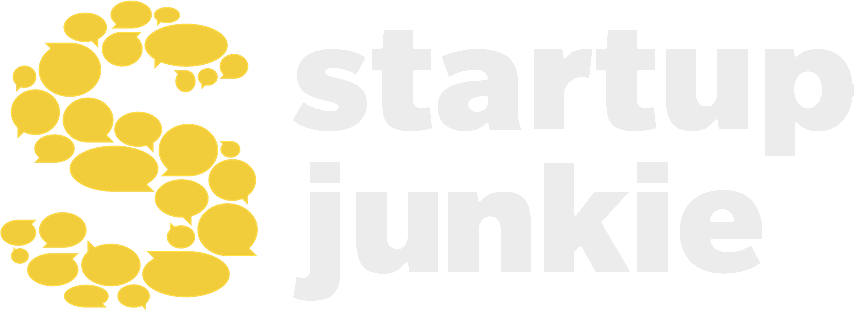Fayetteville, Ark. — Representatives from Startup Junkie, the Northwest Arkansas-based entrepreneurial support organization, visited Seoul, South Korea, to meet with leaders of the local venture ecosystem in hopes of creating a partnership to benefit startups in both countries.
The trip was made possible by the support of the South Korean government through the National IT Industry Promotion Agency (NIPA), as well as assistance from a University of Arkansas graduate and former participant in Seoul’s premier accelerator program, K-Startup Grand Challenge, which is organized primarily by NIPA.
Louis Diesel, an entrepreneur in residence at NIPA and consultant manager at the K-Startup Grand Challenge-affiliated ABLE Ventures, will serve as a liaison to Startup Junkie while in South Korea. Diesel was born of Korean mother and American father in Seoul but raised in Fayetteville, Ark. The UA grad moved to South Korea to finish his degree through an exchange program with Yonsei University. Afterward, he went back to work for Fayetteville-based medical technology startup Lineus Medical, participating on behalf of the company in the 2018 K-Startup Grand Challenge. Diesel had worked for the company prior to his move to Seoul.
Lineus Medical finished fourth out of more than 1,700 global applicants, and Diesel was invited to join the NIPA team as an entrepreneur in residence and consultant manager for the ABLE Ventures accelerator program, providing strategy and company management support for this year’s batch of founders launching in Asia. Over the last year, he has become deeply embedded in Seoul’s venture ecosystem, and he’s using those valuable relationships to help build a bridge to the entrepreneurial ecosystem and flagship-businesses of his native Northwest Arkansas.
“From a global perspective, people think about Silicon Valley, Boston and other major cities when referring to the U.S. market, which is natural,” said Diesel. “So, one of our main goals for this trip is to present the value proposition of Northwest Arkansas and its untapped resources.”
“Another goal,” he added, “will be deciding on a collaboration structure that makes the most sense for players on both sides. This trip will be the first of many while preparing for this project.”
Jeff Amerine, founder and managing director of Startup Junkie, likened the potential of the relationship to The Walmart Bridge program in which Walmart connects enterprises with startups based in Israel, helping corporate partners grow their businesses or increase efficiencies by commercializing technology solutions out of Tel Aviv.
“One of our main goals is to figure out how to build a bridge between the South Korean tech startup scene and the entrepreneurial ecosystem and a flagship-businesses that are here in Northwest Arkansas,” Amerine said. “Seeing the success that’s been gleaned by the links built to Tel Aviv, through the Bridge program, we’re looking to do something similar.”
Amerine said Diesel’s work in Asia to help connect the two ecosystems has been invaluable. “He really stoked this up for us. He was aware of what Startup Junkie has been doing here in Arkansas, and he said, ‘Let’s explore this.’
“If you look at all the other initiatives that are in this area and all the other international locations people are engaged with, this hasn’t really been one of them,” Amerine added. “But if you were to consider a fantastic gateway to Asia for a Northwest Arkansas startups to connect with, as well as a good gateway to be able to provide Walmart, Tyson, J.B. Hunt and others visibility into great companies over there, South Korea is perfect.”
For Startup Junkie, such a partnership could prove incredibly valuable in recruiting international companies for future Fuel Accelerator cohorts, which has taken on a new focus in artificial intelligence and machine learning. Taylor Hasley, Startup Junkie consultant and director of the Fuel Accelerator, discussed the concept of a partnership during a conversation with Diesel over the summer. Talks have more recently turned towards creating a joint Fuel-affiliated fund managed by local and Korean partners, according to Diesel.
“On a visit back to Fayetteville, Louis and I met up to discuss the accelerator programs we are both involved in, and we realized there is a significant opportunity to collaborate between the state of Arkansas and South Korea,” said Hasley.
“This collaboration could be in the form of allowing U.S. startups to test their products and services in the South Korean markets, for Korean startups to test their capabilities in the U.S. outside of the overcrowded tech hubs on the coasts, and to create a long-lasting relationship to exploit talent, capital, culture and increase efficiencies of the local enterprises in our regions,” Hasley added. “We are trying to create a global tech hub here in the Ozarks of Northwest Arkansas.”
Diesel agreed, citing how difficult it can be for international startups to find their footing in the overcrowded coastal tech hubs.
“Many startups – not just in Korea, but globally – have a goal of finding their way to the U.S. market,” said Diesel. “Korea’s tech talent is one of the best in the world, so when filtering, we know we can recommend these startups to Northwest Arkansas with confidence. And partnering with established accelerator/VC arms in Korea can maximize efficiency since they already have a deep portfolio of AI/ML tech that fits perfectly with the retail tech industry.”
“People that we know are looking on a worldwide basis all the time to maintain their competitive advantage,” Amerine added. “This is another opportunity to leverage what we have.”
Such a partnership presents a valuable opportunity for Northwest Arkansas startups looking to test the waters in Asian markets. “While we are looking to attract world-class talent to Northwest Arkansas, we also hope to give our U.S. startups exposure to an international testbed, foreign investors and other incredible opportunities,” said Hasley.
South Korea is considered by many to be the No. 1 testbed for global validation, with notably picky consumers, according to Diesel. It’s also Asia’s strongest influencer country, he said. Foreign startups that can sustain sales in South Korea are more likely to exponentially raise their valuation. The Seoul metro area is home to 23 million people and boasts the best IT infrastructure in the world.
According to The Guardian, there were approximately 467 accelerators, venture capital funds and government organizations supporting startups in Seoul and its surrounding province in 2018. The amount of angel investment in Seoul increased from roughly $170 million in 2015 to $250 million in 2017. Since 2015, the South Korean government has provided $4 billion to startups, the most per capita in the world.
During the week-long visit to South Korea, Startup Junkie’s Amerine and Hasley will be introduced to local startups and accelerators and venture capital groups in the community. They will also take part in the K Startup Demo Day.

